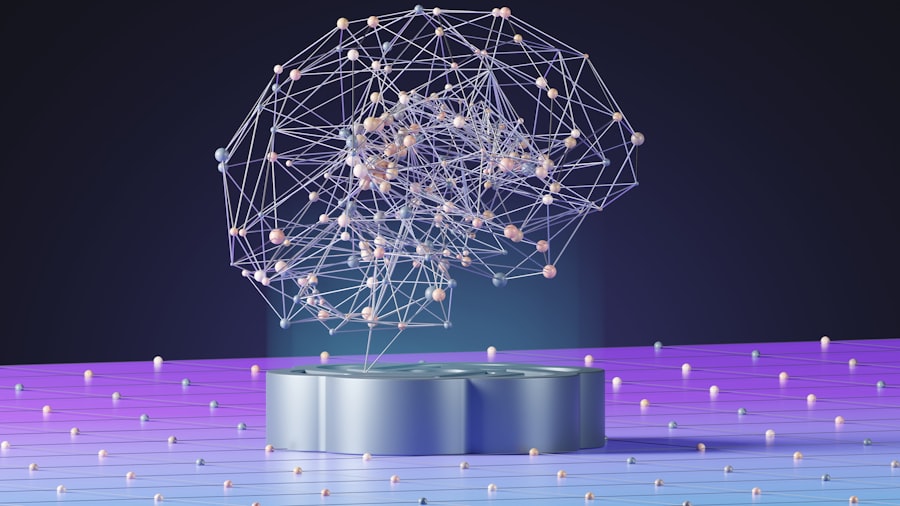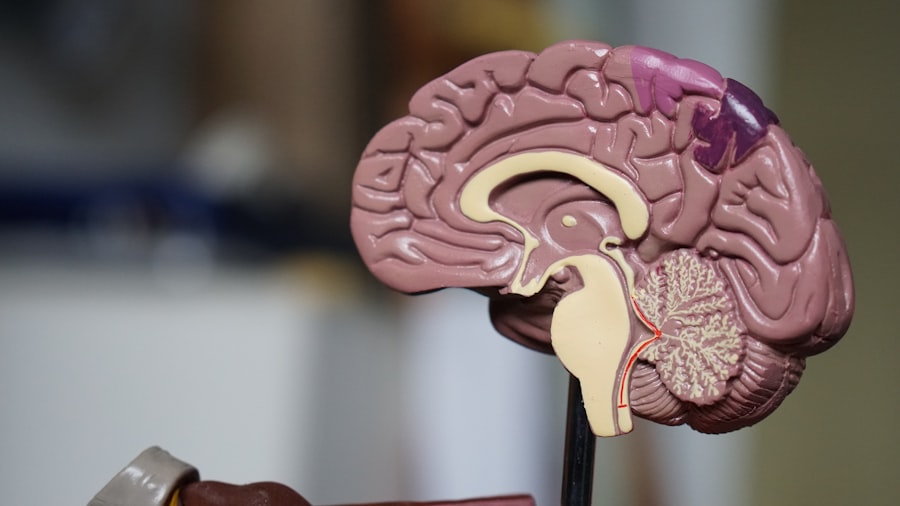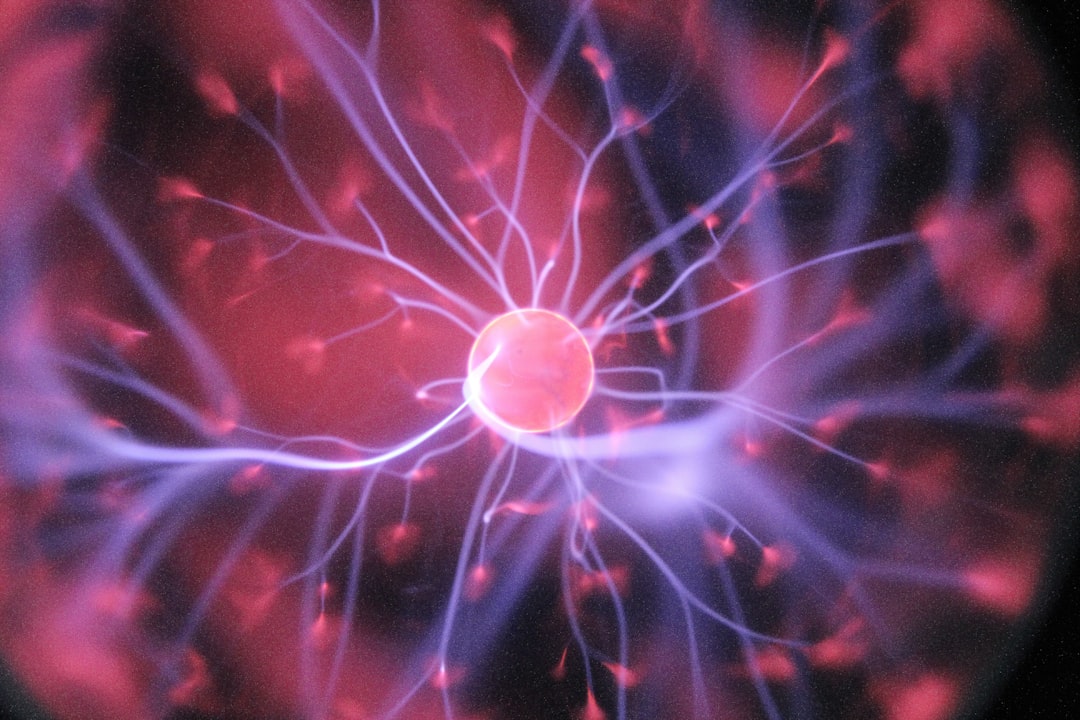The nature of the human brain has long been a subject of fascination and inquiry, sparking debates that traverse the realms of philosophy, neuroscience, and psychology. At the heart of this discourse lies a fundamental question: Is the brain primarily a receiver of external stimuli, or is it a generator of thoughts, emotions, and perceptions? This dichotomy not only shapes our understanding of human cognition but also influences how we perceive consciousness and reality itself.
As you delve into this intricate debate, you will encounter a rich tapestry of historical perspectives, current scientific findings, and philosophical implications that challenge conventional wisdom. The implications of this debate extend far beyond academic circles; they touch upon the very essence of what it means to be human. If the brain is merely a receiver, it suggests that our experiences are largely shaped by external forces, potentially undermining notions of free will and personal agency.
Conversely, if the brain is a generator, it emphasizes the power of individual perception and creativity in shaping one’s reality. As you explore these contrasting viewpoints, you will gain insight into how they inform contemporary discussions about consciousness, perception, and the nature of existence itself.
Key Takeaways
- The debate centers on whether the brain primarily acts as a receiver or generator of consciousness.
- Historical views have alternated between seeing the brain as a passive receiver and an active generator.
- Modern science largely supports the brain as an active generator of consciousness through neural processes.
- Perception and consciousness play crucial roles in understanding how the brain processes information.
- A hybrid model combining receiver and generator aspects is proposed for future research directions.
Historical perspectives on the brain as a receiver
Throughout history, various thinkers have posited that the brain functions primarily as a receiver of information. This perspective can be traced back to ancient philosophies that viewed the mind as a passive entity, absorbing knowledge from the external world. For instance, Plato’s theory of forms suggested that humans perceive only shadows of true reality, implying that our understanding is limited to what we can receive through our senses.
In the realm of science, the idea of the brain as a receiver gained traction during the Enlightenment. Pioneers like René Descartes emphasized the role of sensory experience in shaping human understanding.
Descartes famously stated, “I think, therefore I am,” suggesting that self-awareness arises from the processing of sensory information. This perspective was further supported by early neuroscientific discoveries that highlighted how sensory organs transmit information to the brain, reinforcing the notion that our experiences are fundamentally shaped by external stimuli.
Historical perspectives on the brain as a generator

In contrast to the receiver model, historical perspectives on the brain as a generator emphasize its active role in creating thoughts and experiences. This view can be traced back to philosophers like Immanuel Kant, who argued that our understanding of reality is not merely a reflection of external stimuli but is also shaped by innate cognitive structures. Kant posited that the mind actively organizes sensory information, suggesting that perception is a collaborative process between external reality and internal cognition.
The 19th century brought further developments in this line of thought with the advent of psychology as a discipline. Figures such as William James championed the idea that consciousness is not just a passive reflection of reality but an active process that constructs meaning from experiences. James’s concept of “stream of consciousness” highlighted how thoughts flow and evolve, underscoring the brain’s generative capabilities.
This perspective laid the foundation for modern theories that explore how cognitive processes shape our understanding of the world.
Current scientific understanding of the brain as a receiver
| Aspect | Description | Scientific Consensus | Key Studies/References |
|---|---|---|---|
| Brain as a Receiver Hypothesis | The idea that the brain functions primarily as a receiver of consciousness or information rather than generating it. | Not supported by mainstream neuroscience; considered speculative and lacking empirical evidence. | Early philosophical ideas (e.g., William James), some parapsychology literature. |
| Neural Correlates of Consciousness | Identification of brain regions and neural activity patterns associated with conscious experience. | Strong evidence that consciousness arises from brain activity; brain generates rather than receives consciousness. | Crick & Koch (1990s), Dehaene (2014), Tononi’s Integrated Information Theory. |
| Electromagnetic Brain Activity | Brain produces measurable electromagnetic fields (EEG, MEG) during cognitive processes. | Fields are generated by neural activity; no evidence they function as receivers of external consciousness. | Niedermeyer & da Silva (2005), Baillet (2017). |
| Quantum Brain Hypotheses | Proposals that quantum processes in the brain might enable reception of non-local information. | Highly controversial and speculative; no conclusive experimental support. | Penrose & Hameroff (Orch-OR theory), Tegmark (2000) critical review. |
| Information Processing Model | Brain processes sensory input and internal signals to generate perception and cognition. | Widely accepted; brain as an active processor rather than passive receiver. | Neuroscience textbooks, cognitive science research. |
In contemporary neuroscience, there is substantial evidence supporting the view of the brain as a receiver. Research has demonstrated that sensory organs play a crucial role in gathering information from the environment, which is then processed by various regions of the brain. For instance, studies using functional magnetic resonance imaging (fMRI) have shown how specific areas activate in response to visual or auditory stimuli, reinforcing the idea that our perceptions are grounded in external inputs.
Moreover, advancements in neurobiology have revealed intricate networks within the brain that facilitate sensory processing. The concept of neural pathways illustrates how information travels from sensory receptors to cortical areas responsible for interpretation. This intricate system underscores the brain’s role as a receiver, highlighting its dependence on external stimuli to construct our experiences.
As you consider these findings, it becomes evident that while the brain may generate interpretations and responses, it fundamentally relies on incoming data from the world around you.
Current scientific understanding of the brain as a generator
Conversely, current scientific research also supports the notion of the brain as a generator. Neuroplasticity—the brain’s ability to reorganize itself by forming new neural connections—demonstrates how experiences can shape cognitive processes and vice versa. This adaptability suggests that your thoughts and emotions can actively influence how you perceive and interact with your environment.
For example, studies have shown that engaging in mindfulness practices can alter brain structure and function, enhancing emotional regulation and cognitive flexibility. Additionally, research into creativity and imagination highlights the generative capabilities of the brain. Neuroscientists have identified specific neural networks associated with creative thinking, suggesting that your ability to generate novel ideas stems from complex interactions within your brain rather than mere reception of external stimuli.
This generative aspect emphasizes your agency in shaping your experiences and perceptions, challenging the notion that you are merely a passive recipient of information.
The role of perception in the debate

Perception plays a pivotal role in this ongoing debate about whether the brain acts as a receiver or generator. Your perception is not simply a direct reflection of reality; it is influenced by various factors including past experiences, cultural background, and individual cognitive biases. This complexity suggests that while your brain may receive sensory information from the environment, it actively interprets and constructs meaning from those inputs.
For instance, consider how two individuals can witness the same event yet describe it differently based on their unique perspectives. This phenomenon illustrates how perception is not merely about receiving data but involves an intricate interplay between external stimuli and internal cognitive processes. As you navigate through life, your perceptions shape your understanding of reality, reinforcing the idea that your brain functions as both a receiver and generator in this dynamic process.
The role of consciousness in the debate
Consciousness adds another layer to this multifaceted debate about the brain’s functions. Your conscious experience encompasses not only what you perceive but also how you interpret those perceptions and make sense of them within your broader understanding of self and reality. Philosophers like David Chalmers have explored the “hard problem” of consciousness—why subjective experiences arise from neural processes—highlighting the complexities involved in understanding how your brain generates conscious awareness.
Current research into consciousness suggests that it may not be solely dependent on external stimuli or internal cognition but rather emerges from their interaction. Theories such as integrated information theory propose that consciousness arises from complex networks within the brain that integrate information from various sources. This perspective aligns with both views—recognizing that while your brain receives information from the environment, it also generates conscious experiences through intricate neural processes.
The implications of the brain as a receiver
If we accept the premise that the brain functions primarily as a receiver, several implications arise regarding human behavior and cognition. For one, this perspective may lead to a deterministic view of human experience—suggesting that individuals are largely shaped by their environments and external influences. Such a viewpoint could undermine notions of free will and personal responsibility, raising ethical questions about accountability for actions driven by external stimuli.
Moreover, viewing the brain as a receiver may influence approaches to education and mental health. If learning is seen primarily as an absorption of information from external sources, educational systems may prioritize rote memorization over critical thinking and creativity. In mental health contexts, this perspective could lead to an emphasis on environmental factors in shaping psychological well-being, potentially neglecting individual agency in fostering resilience and personal growth.
The implications of the brain as a generator
On the other hand, embracing the idea that the brain acts as a generator carries its own set of implications for understanding human experience. This perspective emphasizes individual agency and creativity—suggesting that you have significant control over your thoughts and perceptions. Such an understanding can empower individuals to take charge of their mental health and well-being by recognizing their capacity to shape their experiences through intentional thought patterns and behaviors.
Furthermore, viewing the brain as a generator encourages innovative approaches to education and personal development. By fostering environments that promote creativity and critical thinking, educators can help students harness their generative capabilities to construct knowledge actively rather than passively receiving information. In therapeutic settings, this perspective can inform interventions aimed at enhancing self-efficacy and resilience by focusing on individuals’ strengths and potential for growth.
The potential for a hybrid model of the brain
As you explore these contrasting perspectives on the brain’s functions, it becomes increasingly clear that a hybrid model may offer a more comprehensive understanding. Rather than strictly categorizing the brain as either a receiver or generator, recognizing its dual role allows for a nuanced appreciation of human cognition. This integrative approach acknowledges that while your brain receives sensory information from the environment, it simultaneously generates interpretations and responses based on individual experiences and cognitive processes.
Such a hybrid model could have profound implications for various fields—ranging from education to mental health treatment—by promoting strategies that leverage both reception and generation in fostering learning and personal development. By embracing this complexity, you can cultivate a deeper understanding of how your mind operates within an ever-changing landscape of experiences.
Conclusion and future directions for research
In conclusion, the debate surrounding whether the brain functions primarily as a receiver or generator remains an intricate tapestry woven from historical perspectives, current scientific findings, and philosophical inquiries. As you reflect on these ideas, consider how they shape your understanding of consciousness, perception, and human experience. The potential for a hybrid model offers exciting avenues for future research—encouraging interdisciplinary collaboration among neuroscientists, psychologists, philosophers, and educators.
As we continue to unravel the mysteries of the human mind, embracing complexity will be essential in advancing our understanding of cognition and consciousness. By recognizing both reception and generation as integral components of how you experience reality, we can foster more holistic approaches to education, mental health, and personal development—ultimately enriching our collective understanding of what it means to be human in an ever-evolving world.
The ongoing debate about whether the brain functions as a receiver or a generator of consciousness has intrigued scientists and philosophers alike. For a deeper exploration of this topic, you can read a related article on Freaky Science that delves into the complexities of brain function and consciousness. Check it out here: Freaky Science.
WATCH THIS! Your Brain Is Not Real (The Receiver Theory)
FAQs
Is the brain a receiver or a generator of consciousness?
The brain is primarily considered a generator of consciousness. It produces thoughts, emotions, and perceptions through complex neural activity. While some theories suggest the brain might receive information from external sources, the scientific consensus supports the brain as the originator of conscious experience.
What evidence supports the brain as a generator?
Neuroscientific research shows that specific brain regions activate during different mental processes. Brain imaging techniques like fMRI and EEG demonstrate that consciousness correlates with neural activity patterns, indicating the brain generates conscious experience internally.
Are there theories that propose the brain acts as a receiver?
Yes, some philosophical and speculative theories, such as the “receiver theory” of consciousness, suggest the brain might receive consciousness or information from an external source. However, these ideas lack empirical support and are not widely accepted in the scientific community.
How does the brain generate consciousness?
Consciousness arises from the integrated activity of neurons communicating through electrical and chemical signals. Complex networks in the cerebral cortex and other brain areas process sensory input, memory, and cognition, creating the subjective experience of awareness.
Can the brain function without generating consciousness?
Certain brain states, such as deep sleep or anesthesia, show reduced or absent consciousness despite ongoing brain activity. This indicates that specific patterns of neural activity are necessary for generating conscious experience.
Is consciousness fully understood in neuroscience?
No, consciousness remains a complex and not fully understood phenomenon. While the brain’s role as a generator is well-supported, the exact mechanisms and nature of consciousness continue to be subjects of active research and debate.
Does the brain generate all mental phenomena?
The brain generates most mental phenomena, including perception, thought, and emotion. However, some aspects like subconscious processes or reflexes may operate without conscious awareness, still originating from brain activity.
How do brain injuries affect consciousness?
Brain injuries can impair or alter consciousness depending on the affected areas. Damage to regions involved in awareness or cognition can lead to loss of consciousness, coma, or altered mental states, supporting the brain’s role in generating consciousness.
